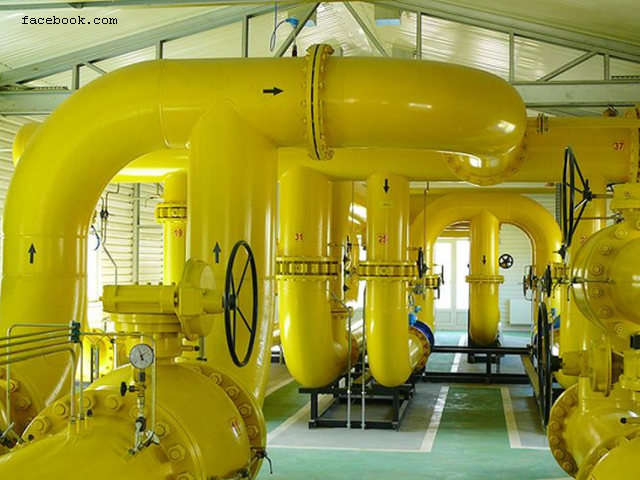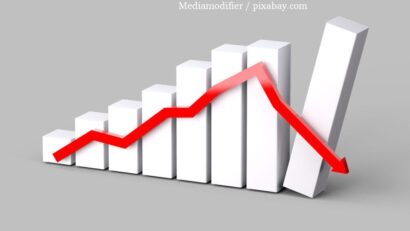Romania, a regional hub for energy security?
Romania has what it takes to be an energy exporter

Corina Cristea, 07.09.2018, 00:00
The National Energy System is sound and viable, and Romania has what it takes to be an energy exporter, says the Romanian line minister Anton Anton, adding that, at a time when energy policies are being reviewed in Europe and around the world, Romania is a participant in the establishment and development of the Energy Union together with the other EU member countries.
Bucharest aims to become a regional hub of energy security, and not just a sale market, to be an interchange of the transport routes that cross the European Union, as well as an efficient and competitive producer of natural gas and energy in Europe.
What are these goals based on? As Minister Anton puts it, on an energy mix that is a major competitive advantage for Romania in Europe: “We have a country full of resources. Romania is one of the few countries in the EU that can take pride in the diversity of their resources. With these resources, and with the low production capabilities that we have at present, we manage to cover the entire national demand for electricity, and, furthermore, we can also export energy in the region. Romania is an energy security hub.”
Moreover, once extraction begins on the Black Sea continental shelf, Romania may strengthen its position, and from an almost independent player in the European natural gas market it may reach a situation where it no longer needs Russian gas imports at all, says a Deloitte study made public recently.
Romanias domestic output already covers most of the countrys natural gas demand. Out of the 28 EU member countries, Romania ranks 3rd, after Estonia and Denmark, as far as resource imports are concerned. Razvan Nicolescu, a former energy minister and currently working for the Deloitte agency, explained that offshore deposits might yield a total of 170 billion cubic metres of natural gas, that is 5 billion cubic metres per year on average.
Investments in the Black Sea hydrocarbon sector will bring 26 billion US dollars into the state budget, and will increase Romanias GDP by 40 billion US dollars until 2040. This estimate, which is more cautious than the one made by the Romanian authorities, is based on technical data concerning the offshore extraction works in the Gulf of Mexico, similar to the ones in the Black Sea.
Razvan Nicolescu. “As far as the reserves go, the authorities said they amount to 200 billion cubic metres. We estimate there are 170 billion, according to our calculations. The European Commission, in its impact studies, speaks about a significant increase in natural gas prices. We expect the additional output to generate a positive impact in terms of competition, and to slow down the upward trend of gas prices in Romania.”
Each dollar invested there will triple, through either direct or indirect effects or in related sectors. Because, as Deloitte experts emphasise, this is not only about selling the actual gas, but about the entire industry involved. Here is project coordinator Sorin Elisei.
Sorin Elisei. “The investment will amount to 22.2 billion US dollars. The implementation of these projects, in all their 4 stages, will support an annual average of over 30,000 jobs. The combined revenues to the state budget will reach 26 billion US dollars, and were also talking about over 70 billion US dollars in additional output generated thanks to these investments.”
Deloitte estimates that 65% of the natural gas will stay in Romania and the balance will be exported, thus consolidating Romanias position on the European natural gas market.
Romanias Energy Strategy, which is currently being finalised, targets an improvement of sustainability in the energy sector, and in turn the development of the energy sector requires the building of new capacities and the upgrade of the existing energy production, transport and distribution units, Romanian authorities say.
Romania has a geographical position in Europe that makes it suitable for natural gas transport routes, which is why the BRUA project has been created. The route of this pipeline is an advantage for us, but we should make efforts to make sure that it not only crosses Romania, but also generates profits for Romania, says the Energy Minister.
BRUA is a new European gas transport corridor planned to better connect the countries it crosses, namely Bulgaria, Romania, Hungary and Austria, along a total 1,318 km, and to support the energy market by allowing new connections with major infrastructure projects, such as the natural gas hubs in Central Europe and the future offshore production units in the Black Sea. The project is also designed to ensure a deeper integration of the European gas markets and to enhance the safety of gas supply.






























